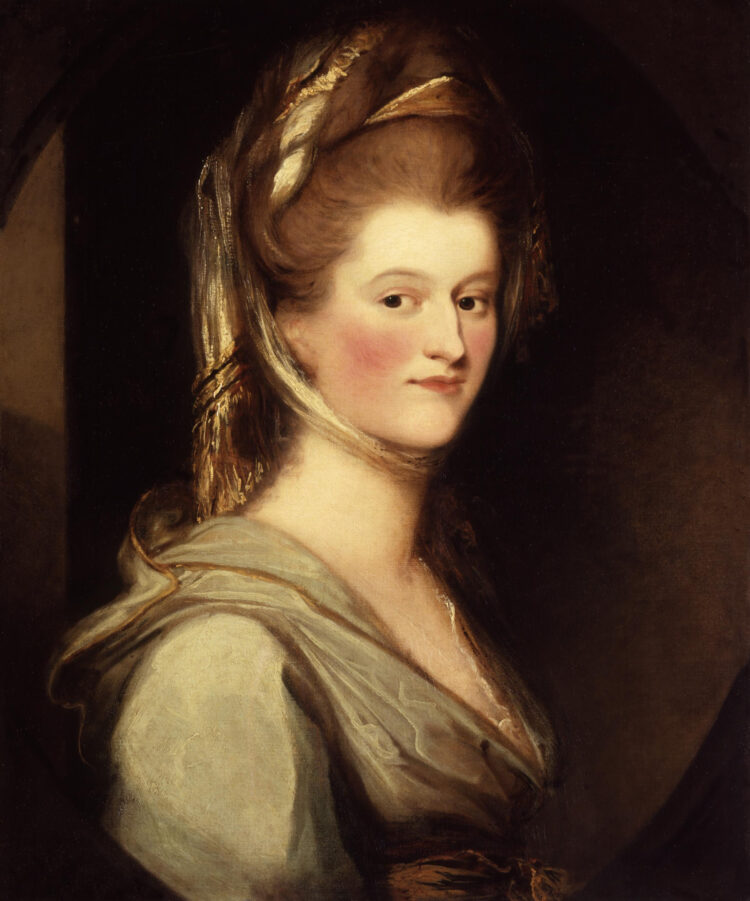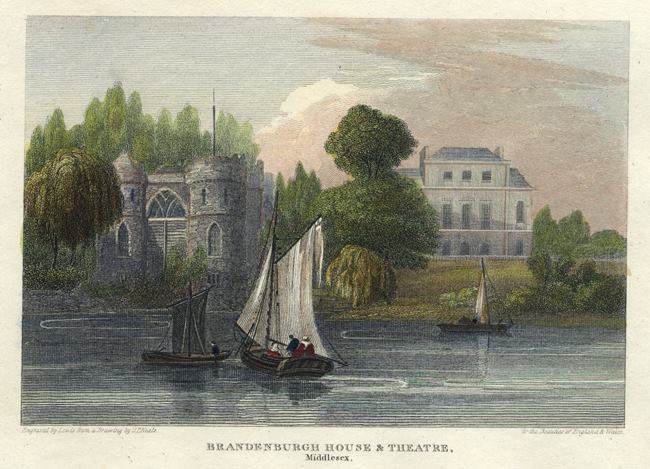From 1780-1820, “Dilettanti,” or amateur theater aficionados, organized theater groups. Among the most passionate, Louise Craven, Margravine of Ansbach, who wrote plays, produced and acted in them, persuaded her doting husband, the Margrave of Ansbach, to build her a two-hundred-seat theater at their estate, Brandenburgh House (on the Thames in Middlesex).
During the social seasons of 1801-02, when the Pic Nic Society was competing with her for audiences, Craven composed her poem “An Answer to the first line of “Dilettante Epilogue – What is a Pic-nic?” Though undated, it’s probably a (doggerel) response to William Combe’s “What is a Pic Nic,” published in the 1803 issue of Pic Nic, a short-lived journal supporting the society. Craven was not a member of the London Pic Nics.
What is Pic-nic, why don’t you know
I’ll tell you then, before you go.
Pic-nic a word of late creation
Born of ennui and alienation.
Look not in Johnson, or Baily *
Enquiry there would surely fail ye.
Galants a few, refin’d and gay
True genuine Illumines
Agreed ten times a year to meet
Whatever else they were to do
That I must leave to them and you.
Naught now was wanting but a name
To grace the Club and mark its fame;
Many were offered their choice —
Pic-nic met the general voice.
* Samuel Johnson’s A Dictionary of the English Language (1755) and Nathan Bailey’s Universal Etymological English Dictionary (1721)
[More on the Pic Nic Society is posted elsewhere on PicnicWit.com.]
Featured Image: In this view from the Thames, the theater is the Gothic structure.
See Elizabeth Craven. Memoirs of the Margravine of Ansbach, Formerly Lady
Craven. Paris: A. & W. Galignani, 1826; Alexander Merrick Broadie and Lewis Melville, Eds. The Beautiful Lady Craven; the Original Memoirs of Elizabeth, Baroness Craven, afterward Margravine of Ansbach, Brandenburg-Ansbach, Princess Berkeley in England. London: John Lane, 1913; Sybil Rosenfeld. Temples of Thespis: Some Private Theatres and Theatricals in England and Wales, 1700-1820. London: The Society for Theatre Research, 1978; The Universal Magazine of Knowledge and Pleasure. Vol.102. London, 1798
*According to Sybil Rosenfeld, from Rosenfeld, “So important were the dilettanti theatricals at the height of their vogue that affairs of state were curtailed to permit the audience to be on time. These audiences were usually carefully selected, and an invitation was considered an honour and privilege.”

